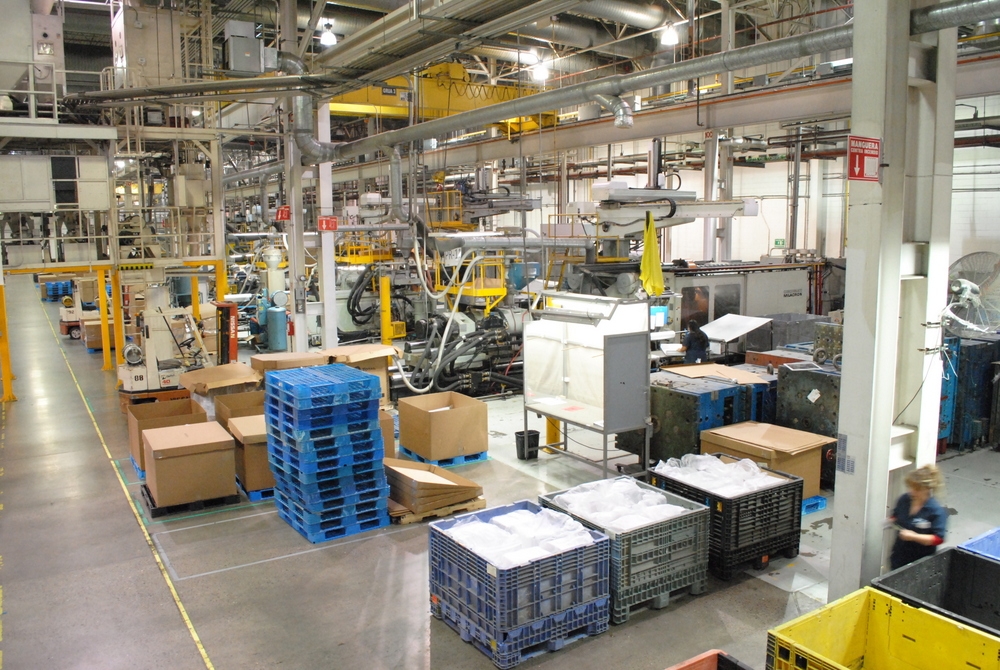- Competitive Labor Costs
Tijuana has a skilled available and affordable workforce that offers significant savings on labor costs in comparison to other investment options in the Americas, Europe and Asia. Transferring operations to Tijuana can lead up to 80% in labor cost savings. For example, salaries in Mexico are 54% lower than Polish salaries and 88% lower than Canadian salaries.
- Simplicity of Operations
The amount of time and the number of procedures required to open and close a business and to obtain construction permits, are crucial to the success of international business.
In Mexico, investors need 13 days and have 8 procedures to complete to open a business. It then takes approximately 140 days and 12 steps to obtain a construction permit. This is significantly lower than what is required in countries such as Brazil, China and India.
- Operational Costs
There are many elements that affect operation costs and business profitability. Some of these elements include tax rates and the number of tax payments.
Operating in Mexico can lead to significant tax savings compared to Brazil, India and the US. A high-level analysis shows that businesses that have production activities in the US market could benefit from a reduction of up to 11.5 percentage points in their tax rates simply by transferring their operations to Mexico.
Mexico has no VAT and no income tax and only required 6 tax payments per year, an advantage over countries such as Brazil, Germany, India and Poland.
- Human Capital
Every year, Tijuana has close to 400 students graduate from engineering and technology programs. This means that Mexico is a source of talent that is very attractive for business in various sectors. The higher education system in Tijuana includes 10 institutions that offer education services and international exchange opportunities.
- Internal Markets and NAFTA Region
Mexico has a population 1.56 million inhabitants, with approximately 1 million are of productive age. This is why Tijuana’s internal market is attractive to businesses that establish in the country (US$25.7M GDP in 2013).
- Free Trade Agreement and Trade Agreement Network
Mexico has signed 11 free trade agreements with 46 countries which make it one of the most open countries to international trade and provide access to more than one billion potential consumers (with incomes representing 60% of the world’s GDP).
Mexico’s free trade agreements are with Austria, Belgium, Bulgaria, Canada, Chile, Colombia, Costa Rica, Croatia, Cyprus, Czech Republic, Denmark, El Salvador, Estonia, Finland, France, Germany, Greece, Guatemala, Honduras, Hungary, Iceland, Ireland, Israel, Italy, Japan, Latvia, Liechtenstein, Lithuania, Luxembourg, Malta, Netherlands, Nicaragua, Norway, Panama, Peru, Poland, Portugal, Romania, Slovakia, Slovenia, Spain, Sweden, Switzerland, United Kingdom, United States and Uruguay.
In addition, Mexico only require 5 documents to complete its exporting or importing procedures.
- Infrastructure and Access to the US
Mexico is well connected with over 16,000 miles of railroads that go north to the US, south to Guatemala, west to the Pacific Ocean and east to the Gulf of Mexico and the Atlantic Ocean.
Mexico has 59 international airports, 16 international seal ports and more than 176,000 miles of highways – allowing for the expedited arrival and departure of goods.
In addition, Mexico shares a 1,864 miles border with the US, which allows for low transporation costs to that market. There are 52 access points between the US and Mexico – 2 from Tijuana to San Diego – that record traffic of 4.5 million load vehicles and more than 70 million automobiles every year.
- Legal Certainty for Foreign Investments
Signing Agreements on Reciprocal Promotion and Protection of Investments (RIPPA) is part of a strategy established by the Mexican government to provide national and foreign investors a legal framework that offers stronger protection for foreign investment in Mexico and Mexican investment abroad.
RIPPAs cover the following disciplines: investment definition, scope of application, promotion and admission, investment treatment, expropriation, transfers and resolution on Investor-State and State-State controversies. The legal framework that relates to trade agreements regarding investment through RIPPAs – bring legal certainty to businesses that decide to establish operations in Mexico.





